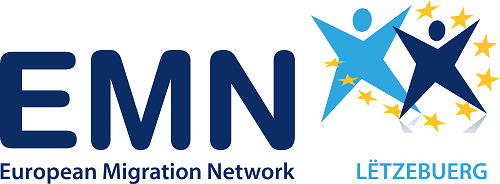How do national, regional and local authorities respond to migrants in a situation of protracted irregular stay? To which rights and public services are they provided access? Which measures are implemented to bring protracted situations of irregular stay to an end?
The new EMN study provides an overview of the policies and practices in 25 Member States and Norway regarding third-country nationals in a prolonged situation of irregular stay. This includes both those who cannot be returned for legal or practical obstacles and those who remain unknown to the authorities.
The new EMN study entitled “Responses to long-term irregularly staying migrants: practices and challenges in the EU and Norway” provides an overview of existing policies and practices in Member States and Norway towards third-country nationals in a prolonged situation of irregular stay. The study explores the responses and approaches to bring such situations to an end both by central and local authorities, and to mitigate the social consequences for the affected third-country nationals.
The study found that the status of third-country nationals who cannot be returned due to legal or practical obstacles varies within and across the Member States as it does not rely on a harmonisation at EU level and usually depends on individual circumstances. This creates a potentially confusing situation for both migrants and service providers to navigate.
Services provided to long-term irregular migrants with some form of status/authorisation are limited compared to those provided to regular migrants, often discretionary, and difficult to access, especially concerning social protection benefits and employment.
The main service providers for long-term irregular migrants are national authorities and municipalities, with non-governmental organisations (NGOs) providing complementary and/or autonomous services. The actions of national governments and local authorities (municipalities, regions) may be contradictory; central authorities must fulfil national migration policy objectives to prevent illegal stay and enforce return decisions, while local authorities must address the practical issues associated with the prolonged irregularly stay, including access to basic services.
In order to end irregular stay in general, (voluntary) return is prioritised in the Member States. Regularisation is only marginally addressed in policy. Good practices identified in the study focused on encouraging return through return counselling and on discouraging irregular stay by restricting certain rights while balancing the need to provide humane treatment for all persons, irrespective of their legal status.
The COVID-19 pandemic has highlighted the situation of migrants who cannot be returned or who remain undetected by the authorities, due to the urgency in ensuring universal access to medical care.
See attached below the EMN Study and Flash in English and French (the French translations were kindly provided by EMN France), as well as the corresponding EMN Inform.

